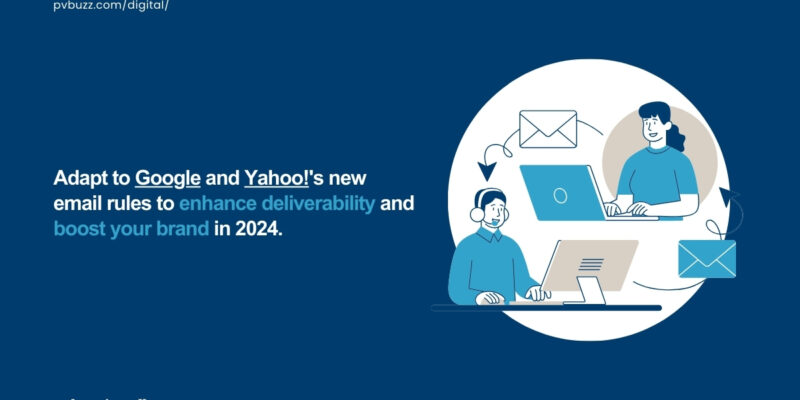- In 2024, adapting to new email authentication standards set by Google and Yahoo! is crucial for businesses aiming to ensure their emails reach their intended audience.
- Self-authentication and the use of DKIM signatures have become essential practices for improving email deliverability and boosting brand reputation.
- Learn how these changes impact your email strategy and what steps you can take to stay ahead.
Staying updated with the latest email authentication standards is crucial for businesses aiming to maintain the integrity and deliverability of their email campaigns.
Recent updates from Google and Yahoo! have brought significant changes to the email authentication process, emphasizing the importance of sender reputation and the need for businesses to adapt swiftly to these changes.
Understanding the Shift in Email Authentication Practices
On October 3rd, the digital giants Google and Yahoo! announced their plans to reinforce their bulk sender policies.
This move is designed to combat spam more effectively by restricting unauthenticated emails. It underscores the growing need for legitimate email senders to authenticate their messages, ensuring they are welcomed into the recipient’s inbox rather than being relegated to the spam folder.
Email authentication is not a new concept, but its importance has skyrocketed with these updates.
Authentication serves as a verification mechanism, confirming the legitimacy of an email’s sender. This process is crucial in the fight against spam and phishing attacks.
The most widely recognized method of email authentication today involves DKIM (Domain Keys Identified Mail), which uses cryptographic signatures to add a layer of verification to email messages.
The Importance of Self-Authentication
The recent updates highlight the importance of self-authentication, where businesses are encouraged to authenticate their emails using their own domain.
This practice not only aids in improving a brand’s reputation but also significantly boosts the chances of emails achieving better inbox placement. By authenticating emails with their own domain, businesses can assure recipients of the email’s legitimacy, thereby fostering a sense of trust and professionalism.
The Added Benefit: Boosting Brand Reputation
Perhaps one of the most compelling reasons to adopt self-authentication practices is the positive impact on a brand’s reputation.
Sending emails from a business’s own domain, coupled with DKIM signatures, not only authenticates the email but also elevates the brand’s image in the eyes of the recipient. Businesses that have embraced these practices report an increase in open and click rates by 10-20%, a testament to the effectiveness of self-authentication in enhancing email deliverability and engagement.
Preparing for the Changes: Next Steps for Businesses
As we step into 2024, it’s evident that adapting to the changing email authentication landscape is imperative for businesses wishing to communicate effectively with their audience.
The sophistication of spam filters is on the rise, making it essential for businesses to invest in self-authentication practices and seek the expertise of established email marketing solutions like those we offer.
These steps will not only ensure compliance with the latest standards but also guarantee that your emails continue to reach your audience effectively.
The recent announcements from Google and Yahoo! serve as a wake-up call for businesses to reevaluate their email authentication practices. By embracing self-authentication and adhering to the latest standards, businesses can enhance their brand’s reputation, improve email deliverability, and ensure their messages resonate with their intended audience.
Stay ahead of the curve and make the necessary adjustments to navigate the new email authentication landscape successfully in 2024.
—
If you’d like a one-on-one session to explore how our services or solutions can help your brand, contact us.











Comments